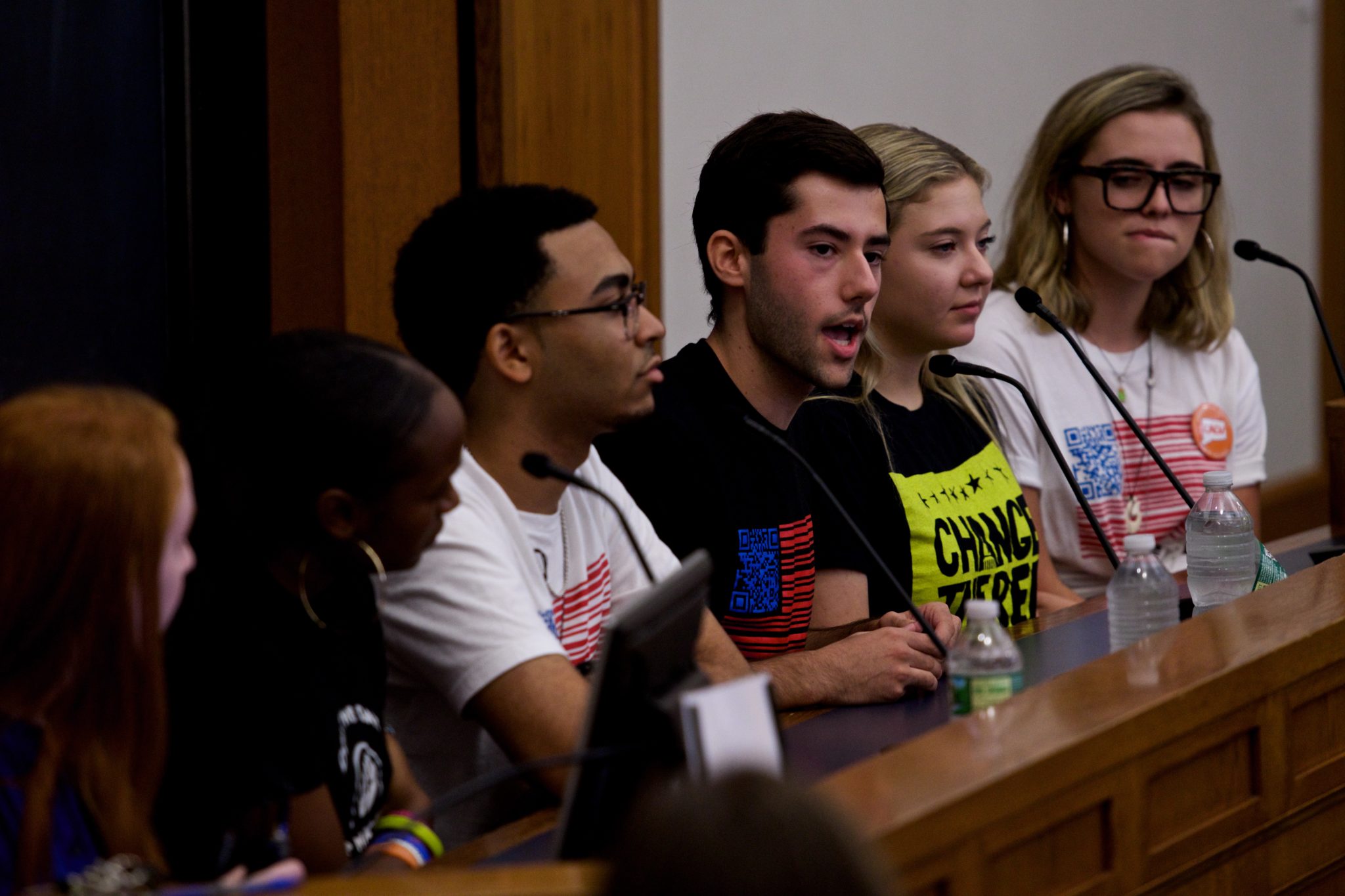
“So much happens before someone pulls a trigger; your job as Yale Law students is to fix the policy violence,” gun control activist Matt Post ’22 told a crowded auditorium at Yale Law School on Thursday.
The statement spoke to a role reversal of sorts: That afternoon, hundreds of law students and professors sat listening to five high school and undergraduate students discuss gun policy.
Hosted by the Solomon Center of Health Law and Policy at the Law School, the event featured a discussion with U.S. Sen. Chris Murphy, D-Conn. — who dialed in via video link — and leaders of March for Our Lives on gun reform and public health. Admission was free, and the audience spilled over into a separate room where the proceedings were live streamed.
The event was organized and mediated by Erica Turret LAW ’20 who graduated from Marjory Stoneman Douglas High School in Parkland, Fla. March for Our Lives was founded in response to the February 2018 school shooting at Marjory Stoneman Douglas that resulted in the deaths of seventeen students and teachers. The organization is run by students and focuses on gun reform advocacy and youth empowerment.
“I’m very embarrassed that it took me until 2012 to wake up to the gun violence epidemic,” he said — citing the Sandy Hook shooting as his call to action.
Since 2012, however, Murphy has been a vocal gun reform advocate. At the event on Thursday, he stressed that gun reform has widespread popular support. The main roadblock, he said, is the gun lobby.
As panelists told stories of their summers spent traveling across the United States in support of the March for Our Lives mission, they emphasized that, even when they didn’t expect to, they were able to find common ground with the “other side.”
For his part, Post spoke about an interaction he had with counter-protesters who had gathered across the street from one of their rallies with AR-15’s and other guns. The students crossed the street to have a conversation with the counter-protesters and were able to reach agreement through open communication, he said.
One panelist, Bria Smith, a March for Our Lives activist, spoke extensively about widening the scope of conversations about gun reform. The issue, she argued, is not just about mass shootings but also about the daily violence that takes place on American streets.
“People say ‘you’re too young to have an opinion.’ I was too young to see someone shot and killed,” Smith said. “Intersectionality makes a movement.”
The conversation then shifted to the policy reforms that March for Our Lives advocates. The organization’s platform, available in a 10-point format on its website, calls for such policies as universal background checks and keeping guns out of the hands of convicted domestic abusers.
The students, however, were quick to point out that their goal is not to write the policies.
“That’s a common misconception,” said Delaney Tarr, student at Marjory Stoneman Douglas High School. “It’s not our job to craft legislation.”
The audience seemed receptive to the ideas presented by the panelists, snapping and clapping in agreement on multiple occasions.
Lindsay Daugherty | lindsay.daugherty@yale.edu







